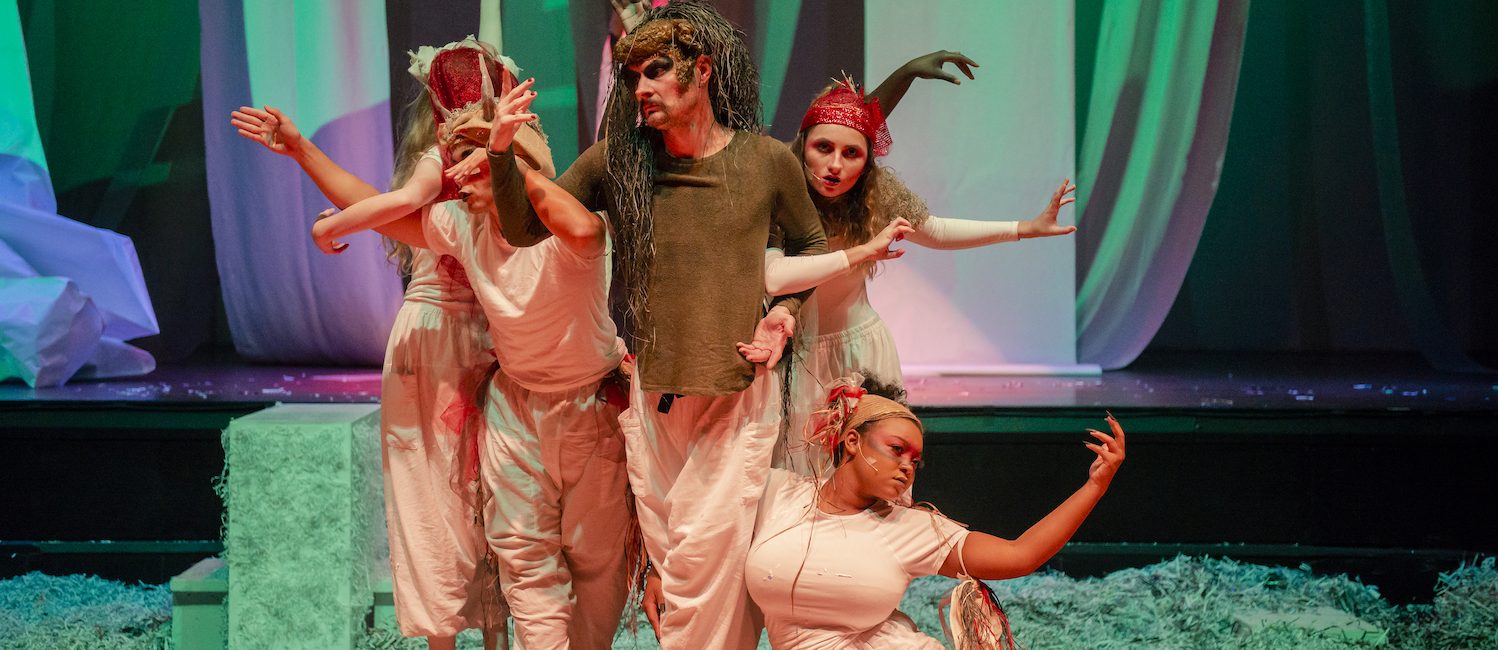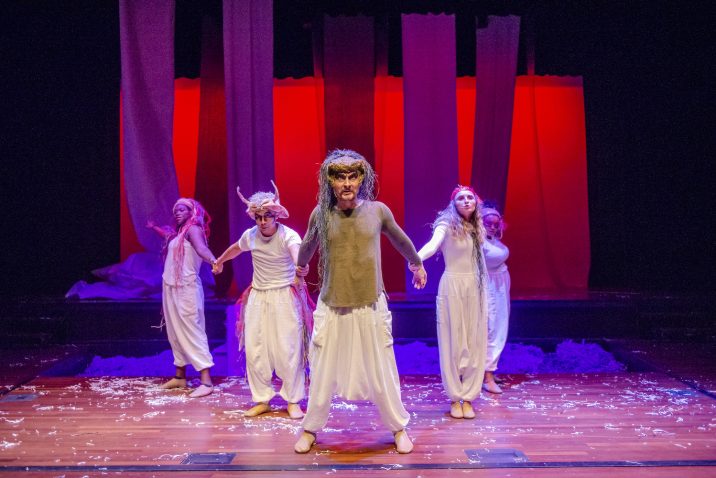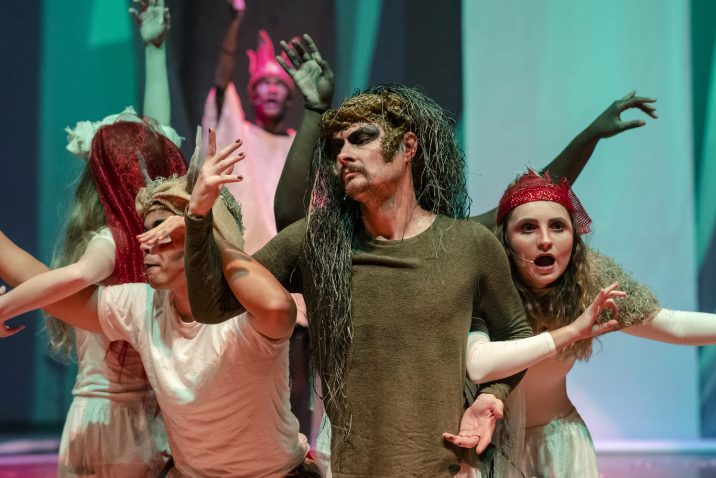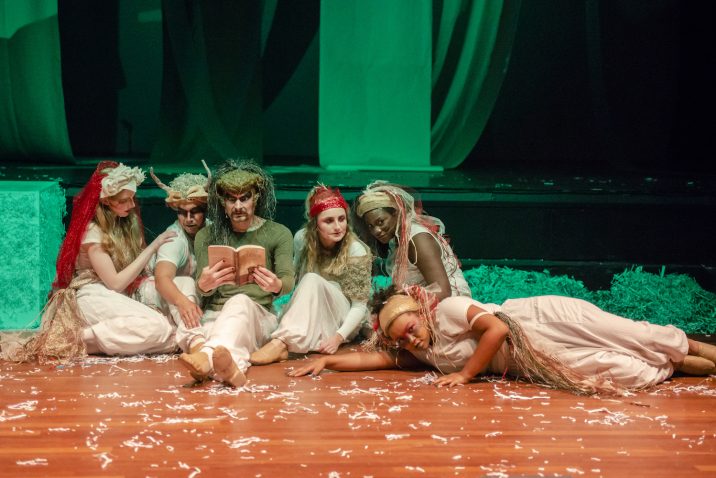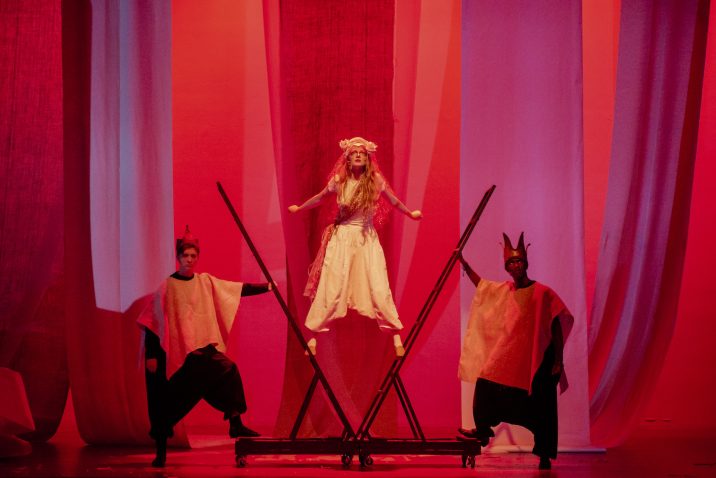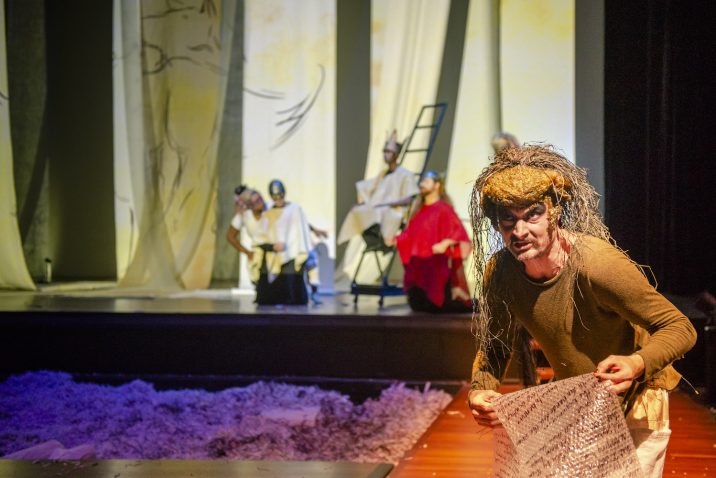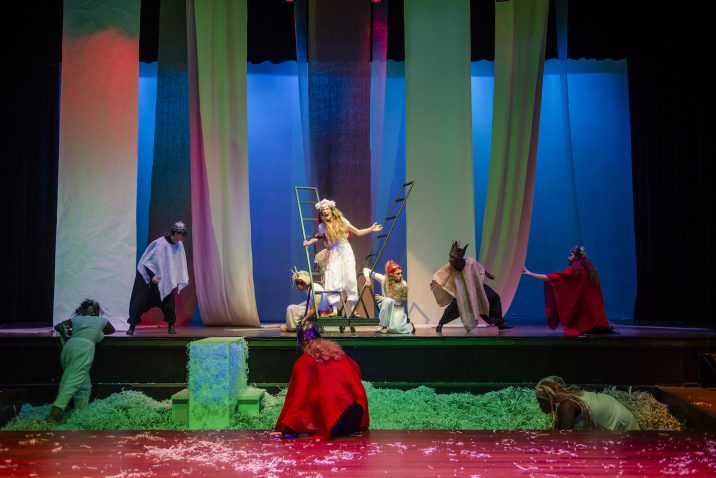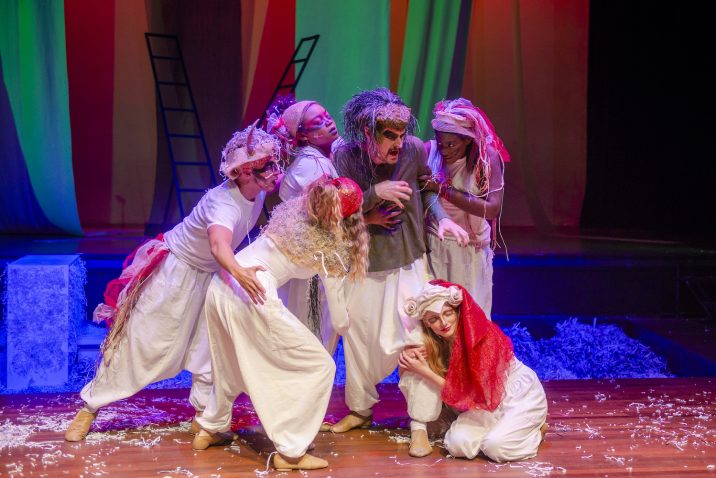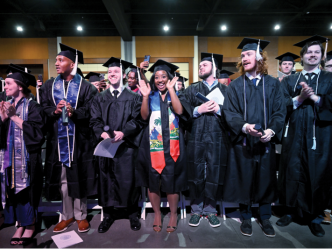Dr. Melanie Kitchens O’Meara, an associate professor in the Department of Art and Design, and three former students from the Center for Undergraduate Research and Scholarship, recently won the 2021 Marion Kleinau National Scripting Award for their adaptation of the 1971 novel Grendel for the stage.
“Dr. Marion Kleinau is one of the matriarchs of performance studies in this country. She fought for our field and fought for a space to do performance work at Southern Illinois University,” O’Meara said, adding SIU renamed its theater the Marion Kleinau Theater in 1996 because of her dedication to creating a space for oral interpretation and group performances of literature.
“Dr. Kleinau is now retired, but she created this national award and it’s only been around four or five years, so for my students and I to be recognized nationally in my field is exciting.”
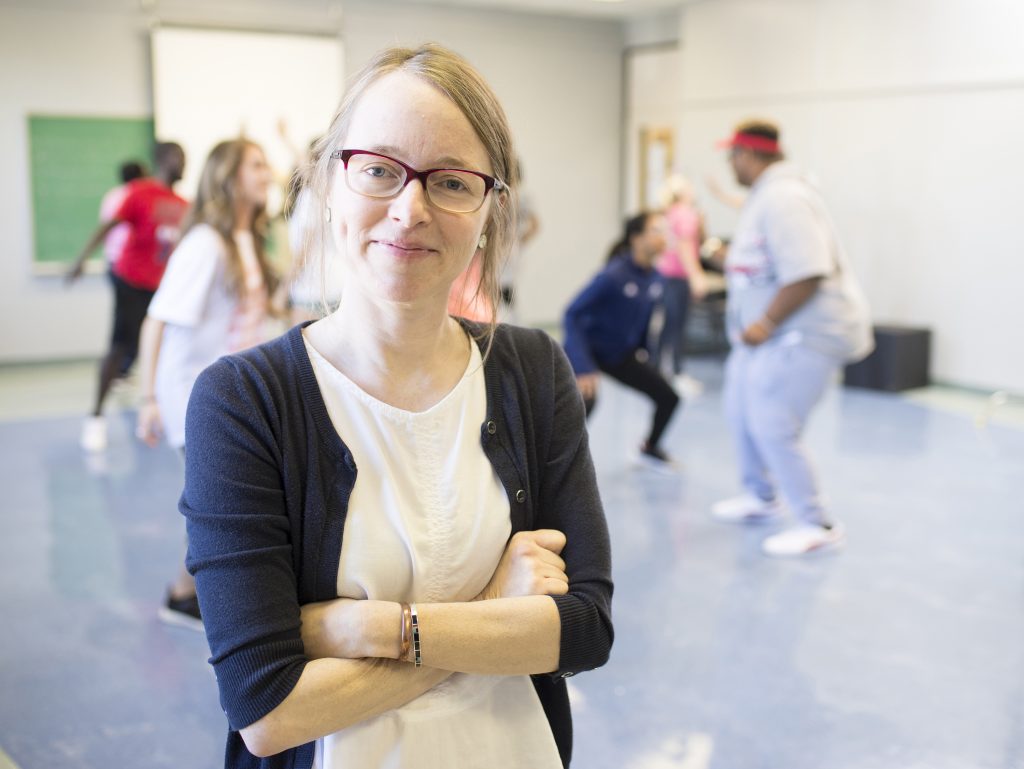
O’Meara said receiving this award for their adaptation of Grendel is particularly rewarding because her former students, Kayla Johnson, Sabrina Nacci and Rachel Visintainer, were so integral in the success of the play.
“They were such a huge part of the process in adapting Grendel for the stage and learning about chamber theatre,” O’Meara said, explaining chamber theatre is a method of adapting literary works to the stage using a maximum amount of the work’s original text and maintaining the narrator.
“And this play was special to me because John Gardner’s novel had a major impact on me as a young high school student. It was a shift in the way that I thought about the world. Then, when I learned about performance studies as an undergraduate in college, I knew Grendel was a text I would bring to life on the stage one day.”
In the 1971 novel Grendel, readers experience the Old English poem Beowulf from a new perspective: Through the eyes of the monster.
“It was a pivotal book for me that made me think about a marginalized perspective,” O’Meara said. “And I still have my notes from college when I wrote down a list of things that maybe one day I would pursue. Grendel was on that list, so that novel was one of those things that started everything for me in this field of study. So, it’s special.”
As part of CURS’ Summer Scholars Program in 2019 at Augusta University, O’Meara worked with the three students, who have now all graduated, to develop the play using Gardner’s novel. In creating the play, it was important for the students to pay attention to the literature and respect the narrator’s voice in the story, she said.
“In reading Grendel, I was really taken by the book,” Visintainer said in 2019, when the play was performed at the Maxwell Theatre. “I absolutely loved it because it was so powerful and the sense of ‘the other’ became very real. So, our central goal was to maintain the narrator’s voice in adapting it to the stage.”
In her artist statement regarding the adaptation of Grendel, O’Meara wrote that she knew this play would be an enormous undertaking.
“Re-reading the novel with the intent of adapting it, I was keenly aware that not everyone shares my experience of loving and appreciating the language and story in this piece of literature, and I was concerned with how I was going to bring this beast of a novel to life without boring everyone in the audience,” O’Meara wrote, explaining that she wanted to invite local high school students, who were reading the novel, to the performance. “I wanted it to be a great experience for them. I wanted them to appreciate the literature even more after seeing what we did with it.”
Therefore, O’Meara wrote that she and the three students created a “chorus of Grendel narrators and a creative, epic, fully embodied aesthetic spectacle that the performers would love to perform and the audience would be unable to pull their eyes away from.”
“Ultimately, I feel I accomplished my goal of teaching a group of students more about chamber theatre and presentational performance practices, and we created a well-attended and successful production,” O’Meara wrote. “We had fun and created a group that was comfortable enough to experiment with staging in ways that surprised and delighted everyone in the room.
“It was a hard show with lots of difficult text for the performers, but we supported one another all the way through our process, and we came out on the other side of it extremely proud of what we were able to accomplish in such a short period of time.”
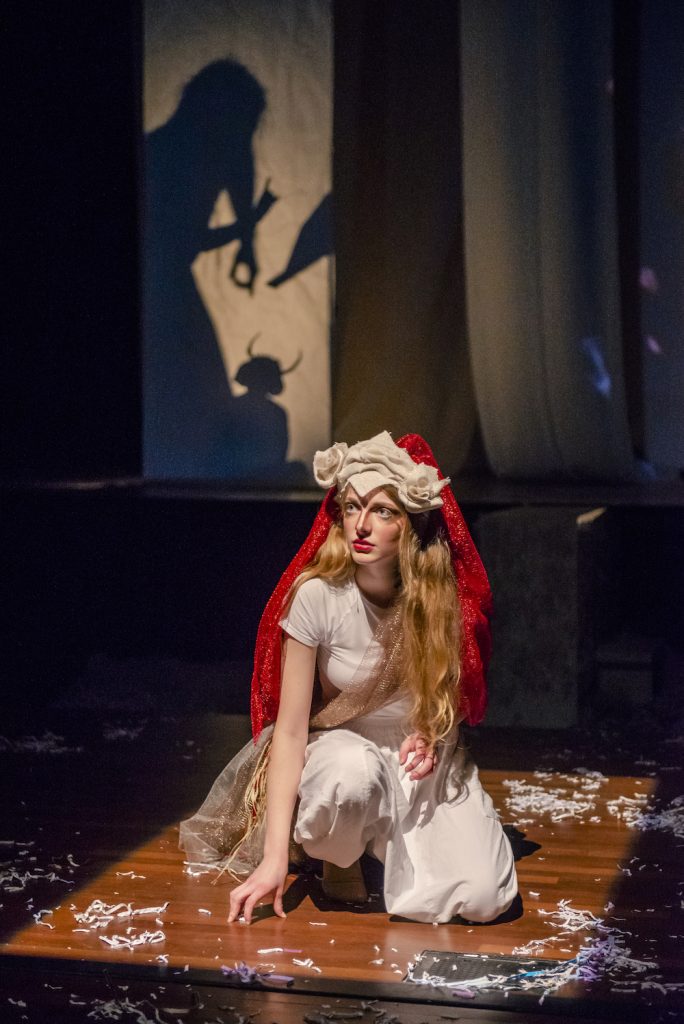
After learning she and the students won the 2021 Marion Kleinau National Scripting Award, O’Meara reached out to the three students, the dean of Pamplin College and the chair of her department to share the exciting news.
“It feels good to be recognized,” O’Meara said. “And I think it is cool that it’s happening right now before we launch the new Bachelor of Fine Arts in Digital and Visual Storytelling this fall. It seems like these positive things are all happening at the same time and I’m extremely grateful for it all.”
 Augusta University
Augusta University
